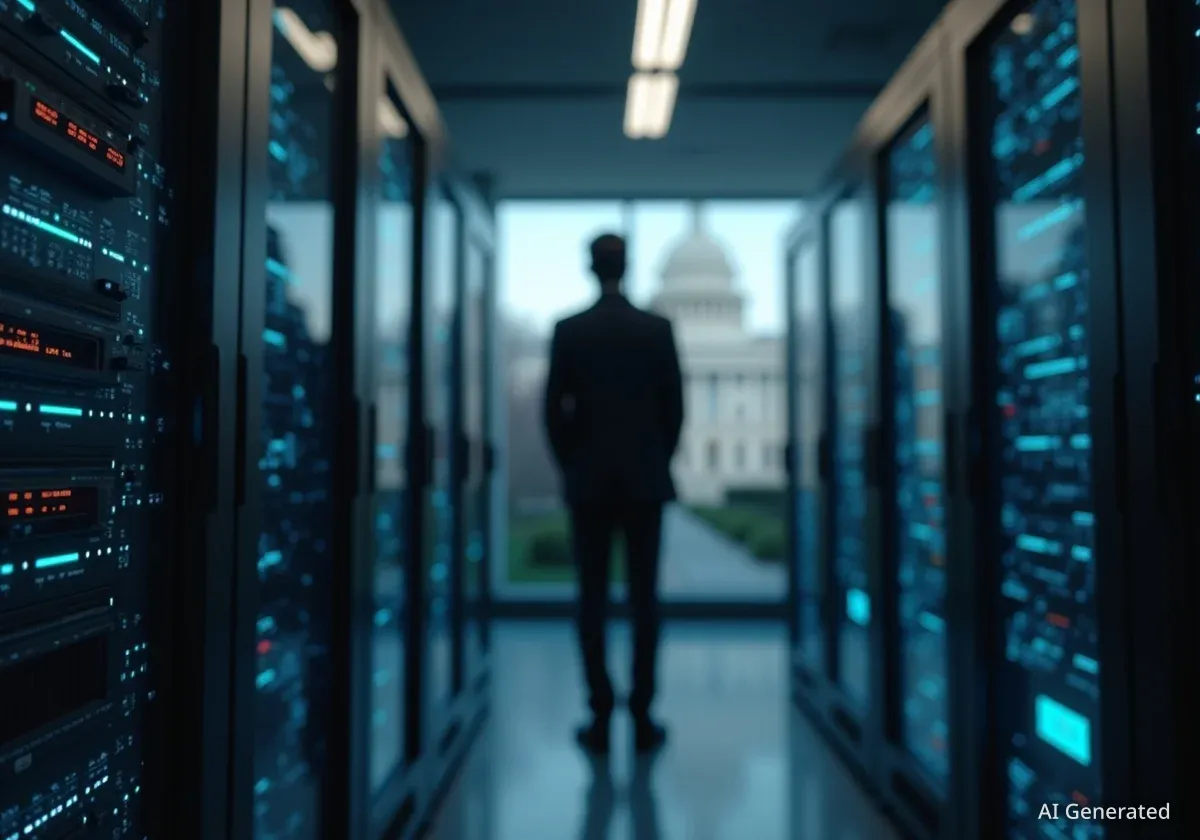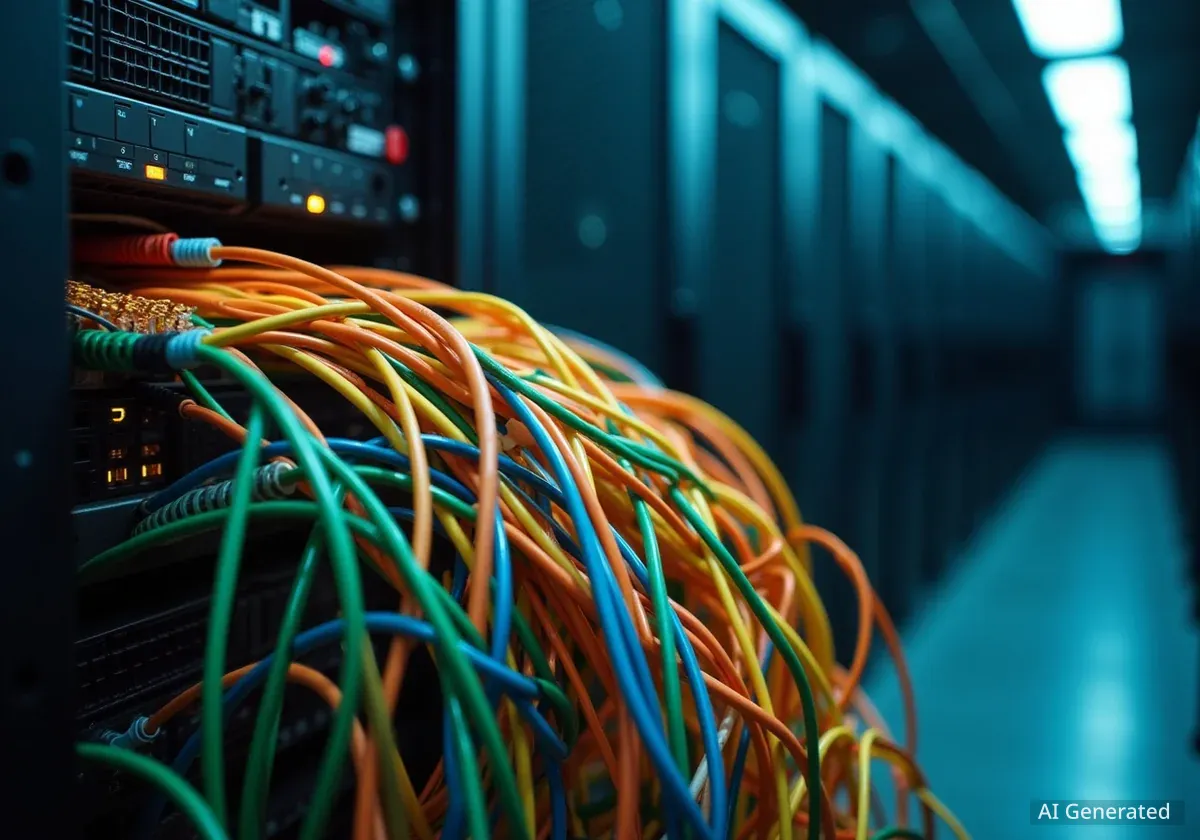Artificial intelligence company Anthropic is facing increased tension with United States government officials due to its policy that prohibits the use of its AI models for certain law enforcement activities. The company has declined requests from contractors working with federal agencies, citing its strict acceptable use policy against domestic surveillance.
This stance has created a significant point of friction with members of the current administration, who view the policy as a moral judgment on the work of federal agencies. According to senior officials, the disagreement highlights a growing divide between Silicon Valley's safety-focused principles and the government's operational needs.
Key Takeaways
- Anthropic's usage policy prohibits its AI models from being used for domestic surveillance, affecting agencies like the FBI and ICE.
- Senior U.S. officials have expressed concern that the policy is vaguely defined and could be selectively enforced.
- The restrictions are causing operational challenges for federal contractors who rely on Anthropic's models, which are sometimes the only ones cleared for top-secret government work.
- The conflict is part of a larger debate about the ethical responsibilities of AI companies and their role in government and national security.
Details of Anthropic's Usage Restrictions
Anthropic's acceptable use policy explicitly forbids the use of its technology for tasks related to surveillance. This includes monitoring U.S. citizens, a core function of several federal law enforcement bodies. As a result, agencies such as the Federal Bureau of Investigation (FBI), the Secret Service, and Immigration and Customs Enforcement (ICE) are limited in how they can apply Anthropic's powerful AI models.
The company recently denied requests from private contractors seeking to use its AI tools for projects linked to these agencies. According to sources within the administration, this refusal has deepened hostility toward the company, which is seen as selectively applying its rules based on political considerations.
Vague Terminology Causes Concern
A key point of contention is the policy's language. Officials have noted that the term "domestic surveillance" is not clearly defined within Anthropic's policy. This lack of specificity allows for broad interpretation, which government representatives worry could be used to arbitrarily block legitimate law enforcement activities.
In contrast, other major AI developers have more nuanced policies. OpenAI, for example, prohibits "unauthorized monitoring of individuals," which implies that legally sanctioned monitoring by law enforcement may be permissible. Anthropic's broader restriction does not appear to offer similar exceptions, placing it at odds with government expectations.
The Broader AI Safety Movement
Anthropic was founded by former OpenAI employees with a strong focus on AI safety and ethical development. The company's policies reflect a cautious approach that prioritizes preventing potential misuse of its technology. This philosophy sometimes clashes with the objectives of government and national security agencies that seek to leverage cutting-edge AI for defense and intelligence purposes.
Impact on Government Operations
The restrictions are not just a matter of principle; they have practical consequences for government contractors. In certain high-security environments, Anthropic's Claude AI models are the only top-tier options available through secure platforms like Amazon Web Services (AWS) GovCloud. This platform is specifically designed for government agencies with stringent security requirements.
When Anthropic denies usage for a particular project, it can leave contractors without a viable alternative for tasks requiring top-secret clearance. This creates a significant operational bottleneck and has become a source of frustration for both the contractors and their government partners.
Fact: Despite its restrictions, Anthropic maintains a relationship with the U.S. government. It has a specific service for national security customers and previously struck a deal to offer its services to federal agencies for a nominal $1 fee to encourage adoption.
The company also works with the U.S. Department of Defense. However, even in this context, its policies remain in effect, prohibiting the use of its models for developing or deploying weapons systems.
A New Challenge in Government Contracting
The situation with Anthropic raises fundamental questions about the relationship between software providers and their government clients. Traditionally, once a government agency purchases a software license, such as for Microsoft Office, the provider does not dictate how the software is used. The agency is free to use Excel for administrative tasks or for tracking weapons inventory.
"An official stated that Anthropic's position amounts to making a moral judgment about how law enforcement agencies perform their duties, a stance that is uncommon in the world of government contracting."
This new paradigm, where AI companies enforce use-case restrictions, is a departure from established norms. It reflects a trend where technology companies, often pressured by activist employees and a commitment to ethical principles, are more carefully controlling the application of their products, particularly in the defense and intelligence sectors.
Future Outlook and Market Position
Currently, Anthropic's strong market position is supported by the high performance of its AI models. The quality of its technology makes it an indispensable tool for certain applications, giving the company leverage to enforce its policies. As long as its models remain at the forefront of the industry, government agencies and contractors may have little choice but to work within its restrictions.
However, this situation may not be permanent. As competitors like Google, OpenAI, and others develop equally powerful models with more flexible usage policies, Anthropic's rigid stance could become a business liability. Government agencies may choose to partner with companies that are more aligned with their operational requirements.
The ongoing friction represents a test case for the AI industry. It will likely influence how future contracts are structured and how technology companies navigate the complex ethical landscape of working with government, law enforcement, and national security entities. The outcome could set a precedent for the entire sector.





